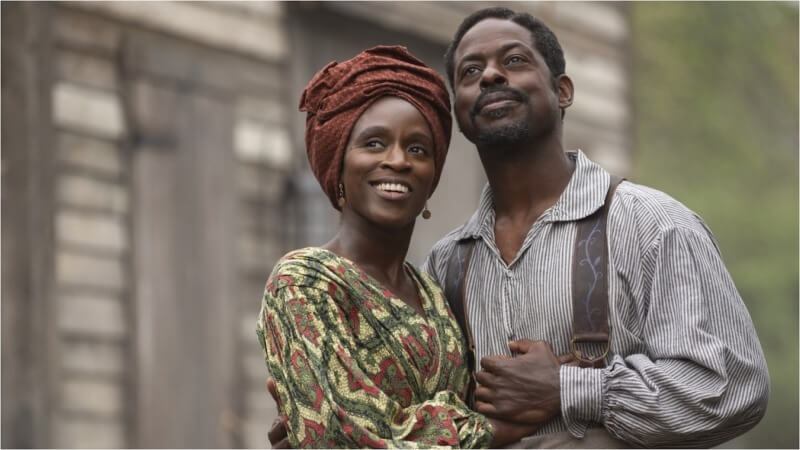Washington Black and the Sterling K. Brown Brand
(Photo: Hulu)
Hulu’s Washington Black is not a bad show. It’s not perfect; the CGI and green screen work could be better in some scenes, and some of the dialogue is overly preachy and heavy-handed. But, for a show set in the early 19th century that has to spend half its time talking about the relationship between an abolitionist adult white man and an enslaved Black boy in a way that’s neither creepy nor white savior-ish and the other half talking about the still-very-true topics of racism, colorism, elitism and even alcoholism without being a total downer, it does a pretty good job.
It is also, without a doubt, a Sterling K. Brown show.
For the better part of the last decade, since his Emmy-winning breakthrough role as prosecutor Christopher Darden on FX’s American Crime Story: The People v. O.J. Simpson, Brown has become known for being that guy. He’s the Wife Guy who hosts a podcast with his spouse, actress Ryan Michelle Bathe, always makes sure to support her work, and talks in interviews about the importance of family.
On screen, he’s known for morally upstanding characters who give great speeches that make you see the world differently (see his other Emmy-winning role, for NBC’s This Is Us, in which he played an adoptee who never felt at home with his loving family) or who can be trusted to do the right thing (he was just nominated for another Emmy; this time for his work as a dogged secret service agent investigating a murder cover-up on Hulu’s Paradise). He doesn’t always play a saint; he was a cocky, murderous dentist on Brooklyn Nine-Nine when it was on FOX and voiced a teenage boy with questionable motives on Netflix’s Big Mouth. But, largely, he is cast in roles where even if you don’t agree with his character’s motives, you can kind of see their points (a prince who wants to help the oppressed rise up in Black Panther; a soldier way too invested in the kingdom of Arendelle in Frozen 2, the talent manager protecting his friend in Prime Video’s The Marvelous Mrs. Maisel, the guy who cut ties early from a messy situation in HBO’s Insecure, ACS’s Darden yet again …).
If Brown is seen or heard on the screen, chances are good that karma will also make an appearance and that judgments will be made upon those who behave poorly.
Washington Brown is an adaptation of Esi Edugyan’s award-winning novel. That version is a bildungsroman because it follows the titular hero’s growth from a child born into slavery in Barbados to an adult who is a free intellectual hiding out in Nova Scotia. For TV, creator Selwyn Seyfu Hinds tells the story through both flashbacks and time jumps, so audiences have to live the character’s backstory to fully understand his current decisions. As a child, Wash (as portrayed by Eddie Karanja) is a perceptive youth who lucks into becoming the mentee to his owner’s science-loving/slavery-hating brother Titch (Tom Ellis). In adulthood, Wash (now played by Ernest Kingsley Jr.) continues his intellectual pursuits. The blanks of what happens to Wash, Titch, and everyone else in those intervening years are slowly filled in throughout the series’ eight episodes, four of which were made available to critics.
-

-

-

-

-

-

-

-

-

-

-

-

-

-

-

-

-

-

-

-

-

-

-

-

-

-

-

-

-

-

-

-

-

-

-

-

-

-

-

-








































